MukkuNa thadai atravan mudha
Laaya dheva niramayan;
Pakku vaththavar vandhu nindru
PaNindhidum padha sevayaan.
Word meaning
mukkunam (muk guNam) = three gunas, sattva, rajas, tamas; thadai = obstacles; atravan = one without (those obstacles); mudhal = first; niramayan = one without blemish, disease; pakkuvam = mature, ripe; paNindhidum = worshipped.
Meaning
My Ramana has shattered the obstacles created by the three gunas, namely, sativa, rajas and tamas. He is blemishes, pure and without any disease. He is the First God. His holy feet are worshipped and served by mature devotees whose minds are ripened by devotion.
Since Bhagavan is not limited to the body, he is beyond all that afflicts the physical plane of existence. He is beyond the play of the three gunas which represent goodness, action and ignorance respectively. All material beings are ruled by a combination of these three guNas. In the Gita, (ch 14 Verse 5), Bhagavan Krishna says:
sattvaṁ rajas tama iti guṇāḥ prakṛiti-sambhavāḥ
nibadhnanti mahā-bāho dehe dehinam avyayam
Material nature consists of the three modes-goodness, passion and ignorance. When the living entity comes in contact with nature, he becomes conditioned by these modes.
Sine he transcends all the limitations of mortal beings, Ramana is blemishes, says SV, who calls Bhagavan ‘muzhu mudhar poruL’ (literally, Full First Object/Thing) which is what Shiva Sidhantha calls Lord Shiva. To the feet of such a pure being come devotees and disciples whose minds are ripe and matured, to serve Bhagavan.
We can see the evidence of this statement from the hundreds of devotees who were drawn to him from around the world to be by his side and serve him during his time in Arunachala. However it is not limited to those who came to Bhagavan the he was in his physical frame. It is equally applicable to those are drawn to the ashram even today. T.R.Kanakammal said in a interview that while it was understandable for people to come when Bhagavan was in his body, the more fortunate are the ones who are still attracted like needle to magnet (gaandham irumbu pol, as Bhagavan says in Aksharamana malai) even after Bhagavan’s nirvana.
Laaya dheva niramayan;
Pakku vaththavar vandhu nindru
PaNindhidum padha sevayaan.
Word meaning
mukkunam (muk guNam) = three gunas, sattva, rajas, tamas; thadai = obstacles; atravan = one without (those obstacles); mudhal = first; niramayan = one without blemish, disease; pakkuvam = mature, ripe; paNindhidum = worshipped.
Meaning
My Ramana has shattered the obstacles created by the three gunas, namely, sativa, rajas and tamas. He is blemishes, pure and without any disease. He is the First God. His holy feet are worshipped and served by mature devotees whose minds are ripened by devotion.
Since Bhagavan is not limited to the body, he is beyond all that afflicts the physical plane of existence. He is beyond the play of the three gunas which represent goodness, action and ignorance respectively. All material beings are ruled by a combination of these three guNas. In the Gita, (ch 14 Verse 5), Bhagavan Krishna says:
sattvaṁ rajas tama iti guṇāḥ prakṛiti-sambhavāḥ
nibadhnanti mahā-bāho dehe dehinam avyayam
Material nature consists of the three modes-goodness, passion and ignorance. When the living entity comes in contact with nature, he becomes conditioned by these modes.
Sine he transcends all the limitations of mortal beings, Ramana is blemishes, says SV, who calls Bhagavan ‘muzhu mudhar poruL’ (literally, Full First Object/Thing) which is what Shiva Sidhantha calls Lord Shiva. To the feet of such a pure being come devotees and disciples whose minds are ripe and matured, to serve Bhagavan.
We can see the evidence of this statement from the hundreds of devotees who were drawn to him from around the world to be by his side and serve him during his time in Arunachala. However it is not limited to those who came to Bhagavan the he was in his physical frame. It is equally applicable to those are drawn to the ashram even today. T.R.Kanakammal said in a interview that while it was understandable for people to come when Bhagavan was in his body, the more fortunate are the ones who are still attracted like needle to magnet (gaandham irumbu pol, as Bhagavan says in Aksharamana malai) even after Bhagavan’s nirvana.

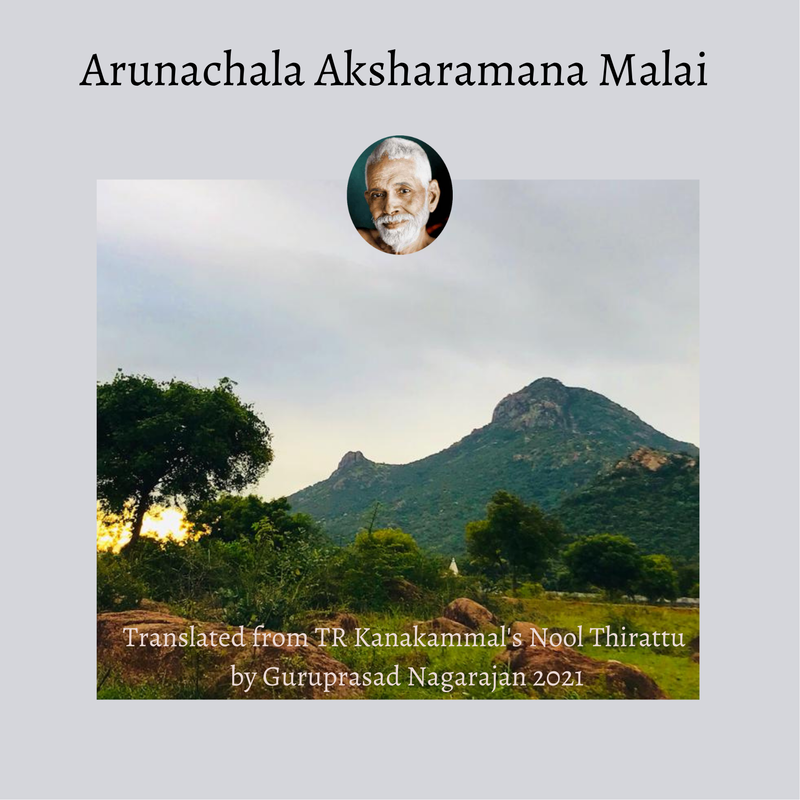
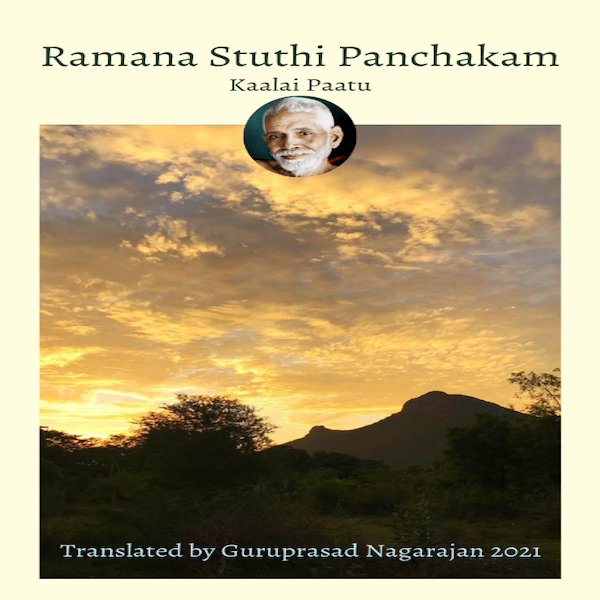
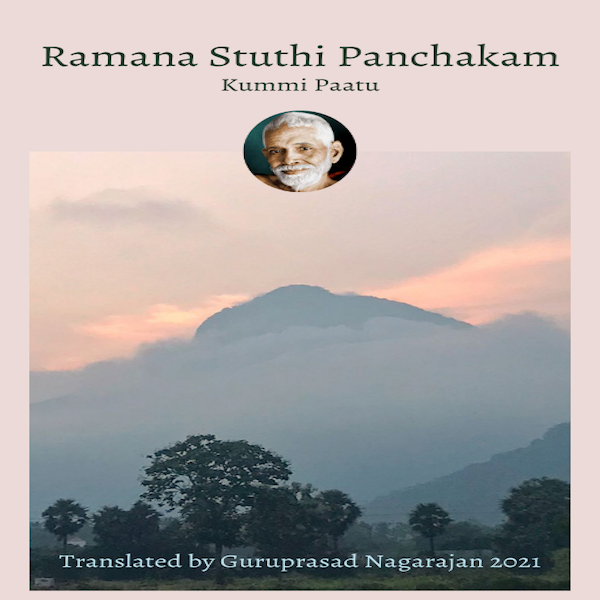
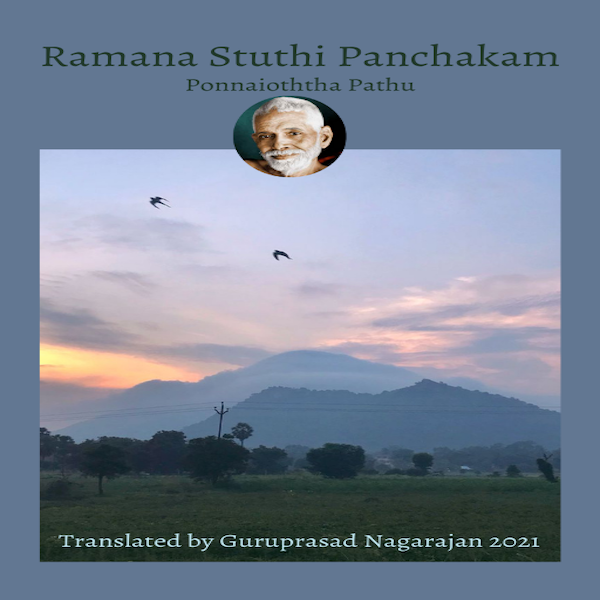
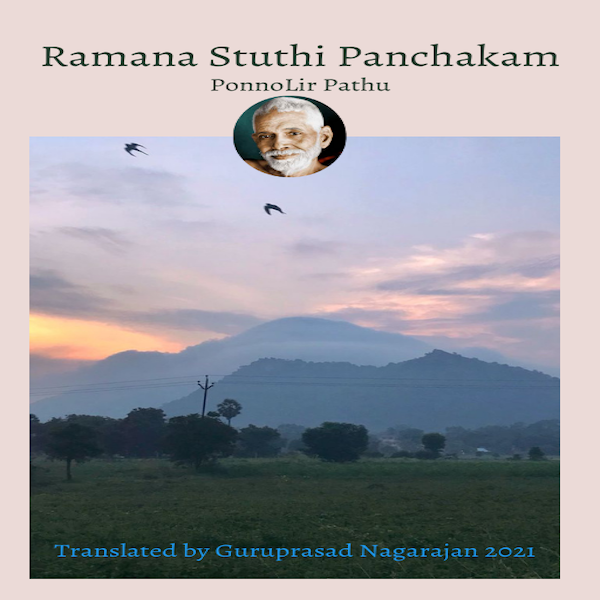
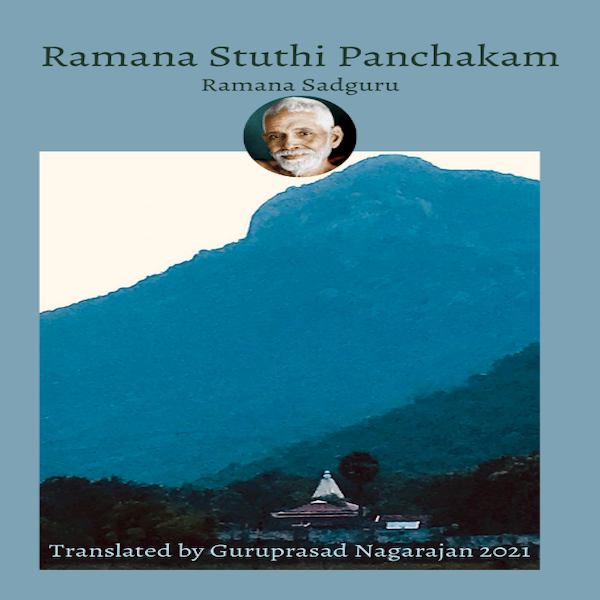
 RSS Feed
RSS Feed